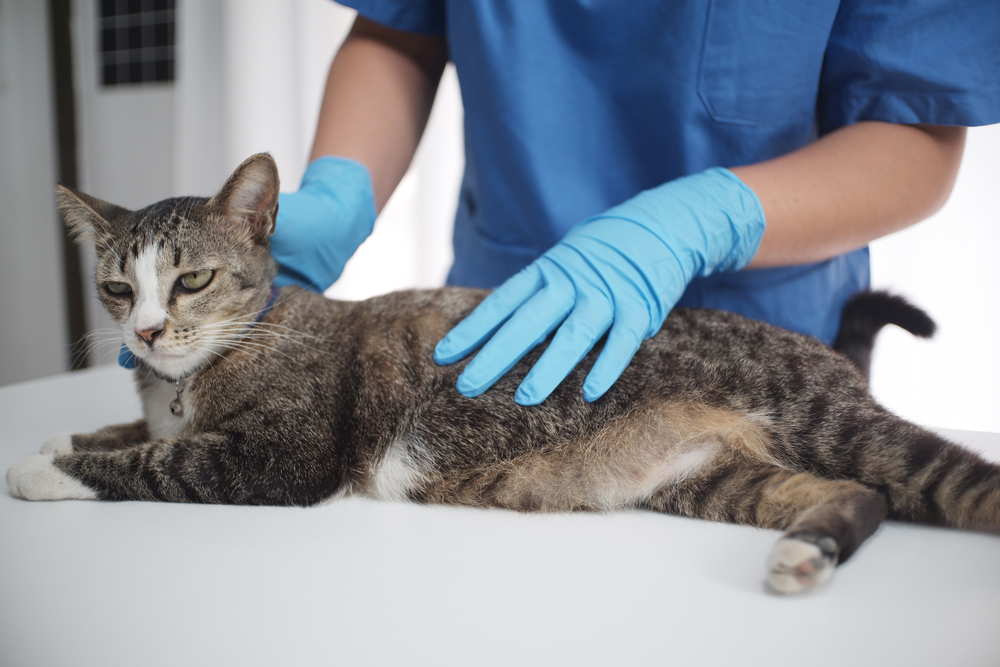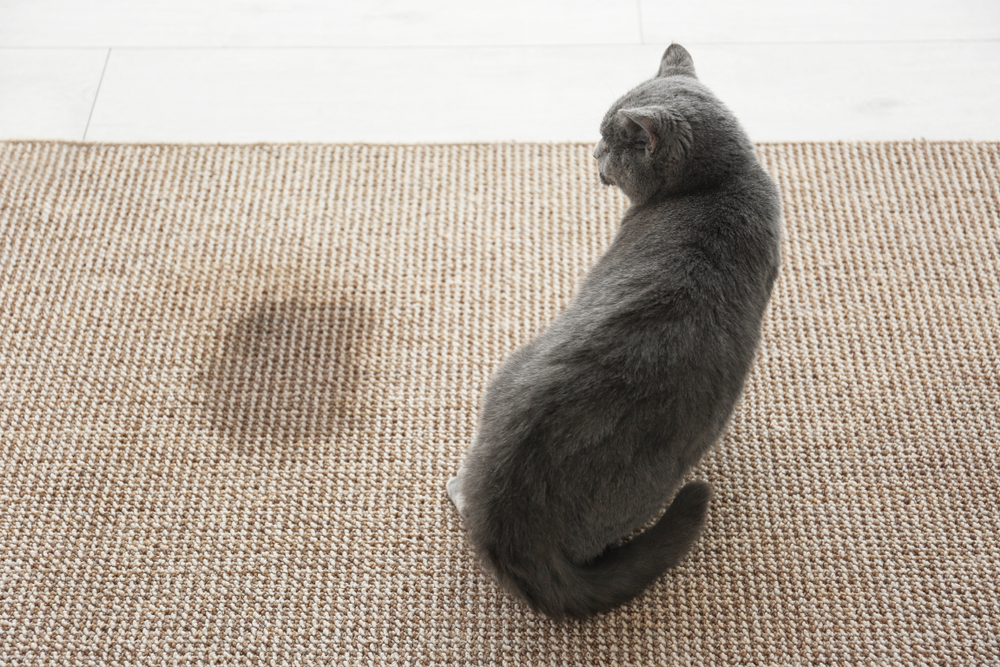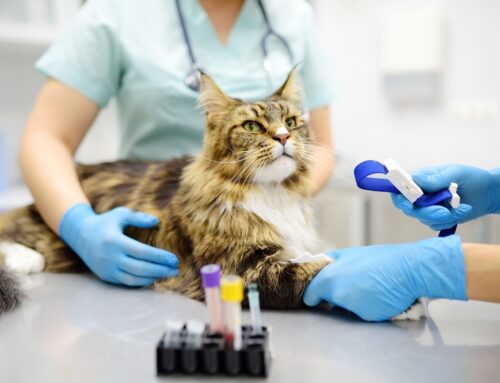Not again, you think to yourself. This is the third time this month you smelled the unique odor of cat urine on your favorite blanket. Why is your cat punishing you? Did you not fill the food dish to the required level? Snored too loud while cuddling? If only you could understand why your cat is refusing to use the litter box. To help you unravel the mysteries of the feline mind—and why cats urinate outside their litter boxes—our Oliver Animal Hospital team has listed some of the most common factors that cause cats to inappropriately eliminate.
#1: Stress in cats
Cats are highly sensitive creatures who experience stress in many ordinary, everyday occurrences. For example, your cat may become stressed if you rearrange the furniture, and heaven forbid you bring a new puppy home. A bullying household cat, a dirty litter box, or poor litter box placement can also cause stress. Cats have a unique relationship between their stress levels and the inside lining of their urinary bladder wall. Bladder inflammation is directly correlated to your cat’s stress levels, and as their stress rises, their bladder becomes inflamed and painful. This inflammation makes your cat feel like they need to use the litter box frequently, which can lead to peeing outside the box. Plus, they may associate the pain they feel when urinating with the litter box, causing them to avoid using the box and seek other soft surfaces.
#2: Kidney disease in cats
A common medical condition in older cats can cause them to urinate more frequently, which means they sometimes can’t make it to the box. With kidney disease, the kidneys have lost much of their function and cannot concentrate urine normally, leading to excessive thirst and urination. In addition, the kidneys cannot adequately perform their primary job of removing toxins and wastes from the bloodstream so, as these toxins build up, your cat will drink more to help flush out the waste, which also causes more frequent urination. While urinary accidents can be frustrating, never limit your cat’s water intake, and instead seek management options from your south Austin vet.
#3: Diabetes in cats
Diabetes is an endocrine disorder that causes your cat to drink and urinate more. As your cat fails to properly metabolize glucose (i.e., sugar), glucose builds up in the bloodstream and spills over into the urine. To get rid of the excess sugar, the body tries to urinate excessively to flush it out. Once your cat is on the correct insulin dose or diet, they may eventually go into remission, or at least have their diabetes signs under control, and you should no longer see urinary accidents. However, cats with diabetes frequently develop urinary tract infections, especially if their condition is not well-controlled. The excess glucose in the urine provides the perfect breeding ground for bacteria, predisposing the bladder to infections. Plus, a urinary tract infection makes diabetes management more difficult, creating a vicious cycle.
#4: Urinary issues in cats

Cats can develop a whole host of urinary issues, but the most common are feline idiopathic cystitis (FIC) and urinary tract infections (UTIs). FIC refers to bladder inflammation that typically appears without an underlying bacterial infection. However, FIC has no definitive cause, but only theories. The most common theory links development of an inflamed bladder that leads to frequent urination and accidents to stress. Young, healthy cats are most likely to exhibit FIC, while older cats with current health issues are more likely to develop UTIs. UTIs are caused by a bacterial infection in the kidneys or bladder, and can create an unbalanced urine pH that can cause crystal formation, which further irritates the bladder by roughing up the lining. A rough bladder wall lining and blood from irritation can create another bacterial infection, despite antibiotic treatment. To stop this cycle of crystalluria and UTIs, your cat may require a prescription diet. Without correcting the urine pH and halting crystal development, kidney or bladder stones can form, creating more urinary issues and possibly requiring surgical removal.
If your cat has begun peeing outside their litter box, they could have developed a medical problem that requires treatment. For a comprehensive workup to get to the root of your cat’s inappropriate elimination, contact your south Austin vet here at Oliver Animal Hospital for an appointment.







Leave A Comment